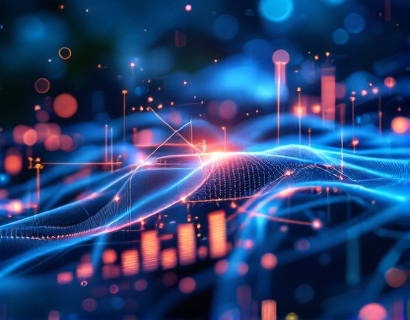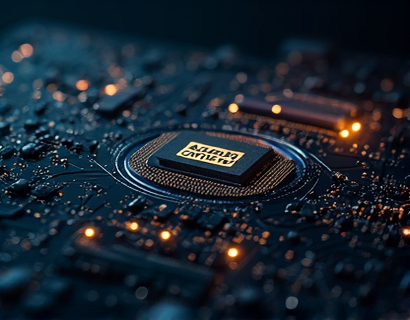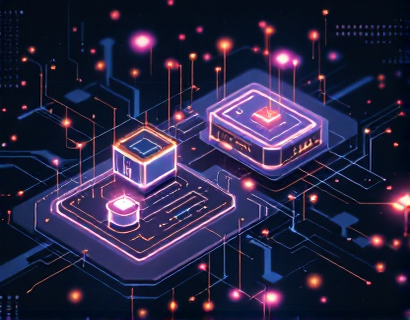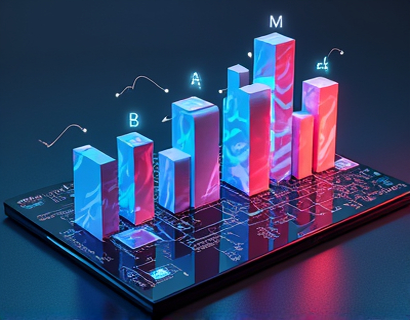Blockchain Oracle Management: Revolutionizing Decentralized Applications with Advanced Data Integration and Smart Contract Solutions
The advent of blockchain technology has transformed various industries by providing decentralized solutions that enhance transparency, security, and efficiency. However, one of the significant challenges faced by blockchain applications is the integration of real-world data into smart contracts. This is where blockchain oracles come into play. Oracles serve as bridges between blockchain networks and external data sources, enabling smart contracts to access real-time information. In this comprehensive guide, we will explore the concept of blockchain oracle management, its importance in decentralized applications, and how advanced data integration and smart contract solutions can optimize these interactions.
Understanding Blockchain Oracles
Blockchain oracles are third-party services that provide smart contracts with external data. They can be categorized into two main types: centralized and decentralized oracles. Centralized oracles rely on a single source of data, which can pose risks related to trust and reliability. In contrast, decentralized oracles aggregate data from multiple sources, enhancing security and reducing the risk of manipulation.
Oracles can deliver various types of data, including price feeds, weather information, and event outcomes. This data is crucial for executing smart contracts that depend on real-world events. For instance, a smart contract for a decentralized insurance application may require weather data to determine if a payout is warranted based on specific conditions.
The Role of Oracle Management in Blockchain Applications
Effective oracle management is essential for ensuring that decentralized applications (dApps) function smoothly and securely. By managing oracles efficiently, developers can enhance the reliability of data integration and improve the overall performance of their applications. Here are some key aspects of oracle management:
- Data Accuracy: Ensuring that the data provided by oracles is accurate and reliable is paramount. Developers must choose reputable oracle providers and implement mechanisms to verify data integrity.
- Security: Oracles can be a potential attack vector for blockchain applications. Implementing robust security measures, such as cryptographic proofs and decentralized consensus mechanisms, can mitigate these risks.
- Scalability: As the demand for real-time data increases, oracle management solutions must be scalable to handle a growing number of requests without compromising performance.
- Cost Efficiency: Managing oracles effectively can help reduce costs associated with data retrieval and processing, making decentralized applications more economically viable.
Advanced Data Integration Techniques
To optimize the functionality of smart contracts, advanced data integration techniques are essential. These techniques enable seamless communication between blockchain networks and external data sources, ensuring that smart contracts can execute based on real-time information. Here are some advanced data integration methods:
1. API Integration
Application Programming Interfaces (APIs) are commonly used to connect blockchain applications with external data sources. By leveraging APIs, developers can access a wide range of data, from financial market prices to social media trends. This integration allows smart contracts to react to real-world events dynamically.
2. Data Aggregation
Data aggregation involves collecting data from multiple sources to provide a comprehensive view of a particular event or condition. For example, a decentralized finance (DeFi) application may aggregate price data from various exchanges to determine the most accurate market price for a specific asset. This approach enhances the reliability of the data used in smart contracts.
3. Event-Driven Architecture
Implementing an event-driven architecture allows smart contracts to respond to specific triggers or events in real-time. For instance, a smart contract for a supply chain application could be programmed to execute when a shipment reaches a particular location, utilizing data from GPS or RFID systems. This approach ensures that smart contracts operate efficiently and respond promptly to changes in the environment.
Enhancing Smart Contract Functionality
Smart contracts are self-executing contracts with the terms of the agreement directly written into code. While they offer numerous advantages, their functionality can be limited without access to real-time data. By integrating advanced oracle management solutions, developers can enhance the capabilities of smart contracts in several ways:
- Automated Decision-Making: With access to real-time data, smart contracts can make automated decisions based on predefined conditions. This capability is particularly useful in industries such as insurance, finance, and supply chain management.
- Dynamic Pricing Models: Smart contracts can utilize real-time market data to adjust pricing dynamically. This feature is essential for applications in the DeFi space, where asset prices can fluctuate rapidly.
- Improved User Experience: By providing users with real-time information and automated processes, smart contracts can enhance the overall user experience. This improvement can lead to increased adoption of decentralized applications.
Security Considerations in Oracle Management
While oracles play a crucial role in enhancing the functionality of smart contracts, they also introduce security risks. Here are some key security considerations for effective oracle management:
1. Data Verification
Implementing data verification mechanisms is essential to ensure the accuracy and reliability of the information provided by oracles. This can include using multiple data sources, cross-referencing information, and employing cryptographic proofs to validate data integrity.
2. Decentralization
Utilizing decentralized oracles can significantly reduce the risk of data manipulation and single points of failure. By aggregating data from multiple sources, decentralized oracles enhance the security and reliability of the information used in smart contracts.
3. Regular Audits
Conducting regular audits of oracle services and data sources can help identify vulnerabilities and ensure compliance with security standards. This proactive approach can mitigate risks associated with data breaches and manipulation.
Case Studies: Successful Implementation of Oracle Management
Several projects have successfully implemented oracle management solutions to enhance their decentralized applications. Here are a few notable examples:
1. Chainlink
Chainlink is one of the most well-known decentralized oracle networks that connects smart contracts with real-world data. By aggregating data from multiple sources, Chainlink provides reliable price feeds for various DeFi applications. Its decentralized approach enhances security and reduces the risk of data manipulation.
2. Augur
Augur is a decentralized prediction market platform that utilizes oracles to determine the outcome of events. By leveraging a decentralized network of reporters, Augur ensures that the data used in its smart contracts is accurate and reliable, enabling users to place bets on real-world events.
3. Band Protocol
Band Protocol is another decentralized oracle solution that focuses on providing secure and reliable data for DeFi applications. By utilizing a network of validators, Band Protocol ensures that the data delivered to smart contracts is accurate and tamper-proof, enhancing the overall security of the applications that rely on its services.
Future Trends in Oracle Management
The landscape of blockchain oracle management is continuously evolving, with several trends shaping its future:
1. Increased Adoption of Decentralized Oracles
As the demand for reliable and secure data integration grows, more projects are likely to adopt decentralized oracle solutions. This shift will enhance the security and reliability of smart contracts, making them more appealing to developers and businesses.
2. Integration with IoT Devices
The integration of oracles with Internet of Things (IoT) devices will enable real-time data collection from various sources. This capability will enhance the functionality of smart contracts in industries such as supply chain management, healthcare, and logistics.
3. Enhanced Security Protocols
As the risks associated with oracle management become more apparent, the development of enhanced security protocols will be crucial. This may include advanced cryptographic techniques, multi-signature verification, and decentralized consensus mechanisms to ensure data integrity.
Conclusion
Blockchain oracle management is a critical component of decentralized applications, enabling seamless data integration and enhancing the functionality of smart contracts. By leveraging advanced oracle management solutions, developers and businesses can unlock the full potential of blockchain technology, ensuring reliable and secure interactions within their applications. As the landscape continues to evolve, staying informed about the latest trends and best practices in oracle management will be essential for success in the blockchain space.










































